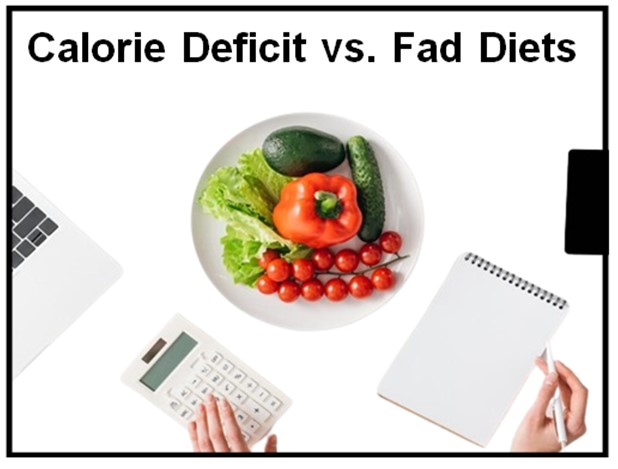Calorie Deficit vs. Fad Diets: Why Science Matters for Sustainable Results
The situation of obesity is alarming in the whole World. Nowadays, people are moving towards the fed diets assuming them as a solution to their problems. People are considering the fed diet to have quick and miraculous results. There's no doubt that these diets are appealing due to the proposed claims, but their lack of scientific evidence raises a lot of concerns.
However, the key to sustainable weight loss is to focus on the fundamental concept of a calorie deficit, supported by using a reliable
calorie deficit calculator. Let's dive into the differences to give you a better understanding of calorie deficit vs. fad diets.
The Calorie Deficit Principle:
The key to weight loss is establishing a calorie deficit. The idea behind this principle is that you must burn more calories than you consume to lose weight. When you eat fewer calories than the amount that your body needs to maintain its weight, you are forcing it to use the extra body fat to give the required energy to the body.
It is estimated that one pound of body weight equals 3,500 calories in scientific terms. Therefore, a daily calorie deficit of 500 calories can lead to weight loss of one pound per week. The concept is straightforward, however achieving a calorie deficit and maintaining it requires calculating calories to lose weight, along with a balanced and informed amount of nutrition.
Fad Diets And Their Pitfalls:
A fad diet is a dietary pattern (restrictive and unsustainable eating patterns) known to be a quick fix for obesity. They claim that they'll help you lose weight and offer other benefits, but they need to be more durable and scientifically proven. A fad diet may cut out entire food groups, restrict calories to an extreme level, or use gimmicks that are unsupported by scientific evidence.
The tendency of fad diets to cause nutritional deficiencies is one of their common pitfalls. Eliminating whole food groups can be the reason for lacking essential nutrients, resulting in fatigue, weakness, and a compromised immune system. Moreover, these diets are restrictive, leading to weight loss. But the regaining starts again when normal eating patterns are resumed.
The Importance of Sustainable Habits:
Science emphasizes adopting sustainable and healthy habits for better weight management. Rather than looking for quick fixes, you should focus on making gradual changes to your eating and exercise habits. Stay hydrated, eat nutrient-dense foods, and exercise regularly.
Lose weight with these scientifically supported strategies:
-
Balanced Nutrition: Use a balanced and varied diet that contains carbohydrates, proteins, and fats
-
Regular Exercise: In addition to creating a calorie deficit, regular exercise is beneficial to overall well-being, including improving mood and energy levels
-
Mindful Eating: It involves savoring each bite, eating slowly, and being aware of the signals from the body, which can help foster a healthy relationship with food
-
Lifestyle Changes: Staying hydrated and getting enough sleep are essential to weight loss success. Lack of sleep and chronic stress can disrupt your hormones
Conclusion:
Fad diets may promise quick results, but they often lead to short-term success followed by frustration and disappointment. Science supports calorie deficits as a sustainable weight-loss foundation. When you understand the science behind calorie deficits, you can make informed choices, prioritize health, and achieve lasting results. By reducing the intake, eating a proper diet, and performing regular exercises you can reduce the weight effectively while being healthy.



